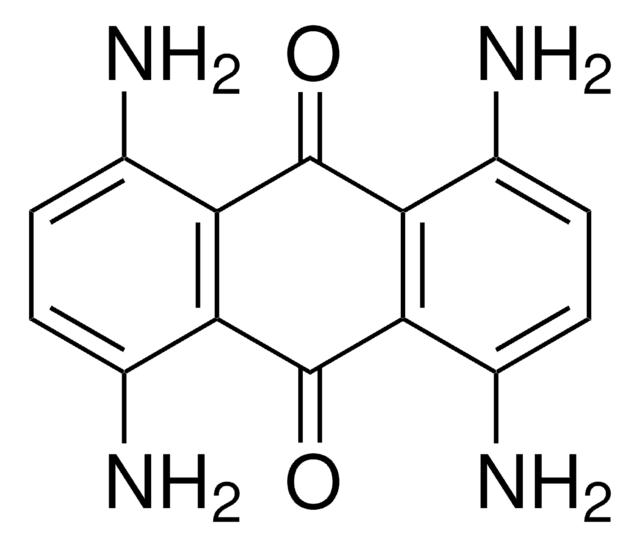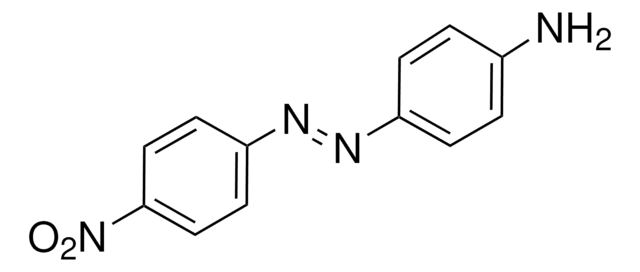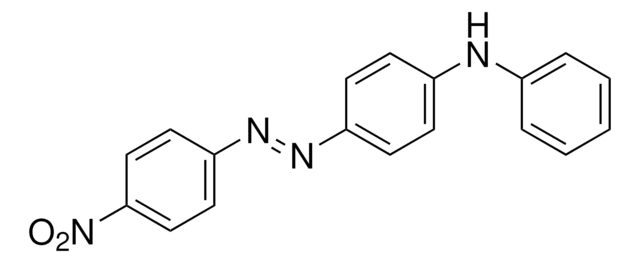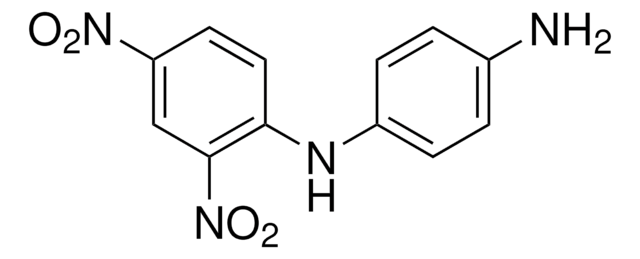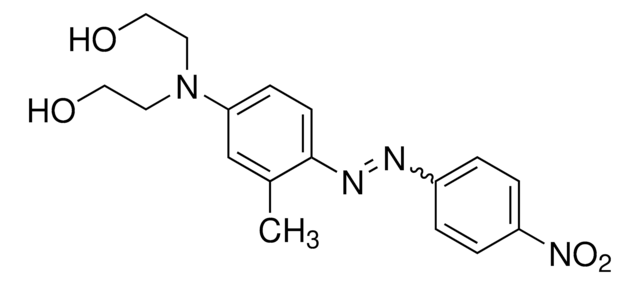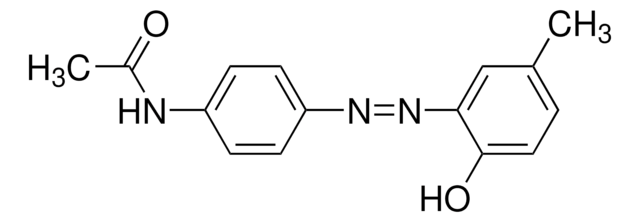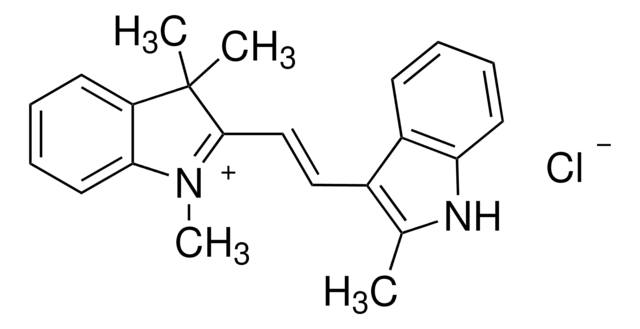21603
Disperse Orange 37
for microscopy
Sinónimos:
3-[4-(2,6-Dichloro-4-nitrophenylazo)-N-ethylanilino]propionitrile
About This Item
Productos recomendados
grade
for microscopy
Quality Level
form
powder
ε (extinction coefficient)
≥250 at 415-425 nm in methanol
application(s)
diagnostic assay manufacturing
hematology
histology
storage temp.
room temp
SMILES string
CCN(CCC#N)c1ccc(cc1)\N=N\c2c(Cl)cc(cc2Cl)[N+]([O-])=O
InChI
1S/C17H15Cl2N5O2/c1-2-23(9-3-8-20)13-6-4-12(5-7-13)21-22-17-15(18)10-14(24(25)26)11-16(17)19/h4-7,10-11H,2-3,9H2,1H3/b22-21+
InChI key
KHZRTXVUEZJYNE-QURGRASLSA-N
¿Está buscando productos similares? Visita Guía de comparación de productos
General description
Application
Other Notes
Elija entre una de las versiones más recientes:
Certificados de análisis (COA)
Lo sentimos, en este momento no disponemos de COAs para este producto en línea.
Si necesita más asistencia, póngase en contacto con Atención al cliente
¿Ya tiene este producto?
Encuentre la documentación para los productos que ha comprado recientemente en la Biblioteca de documentos.
Nuestro equipo de científicos tiene experiencia en todas las áreas de investigación: Ciencias de la vida, Ciencia de los materiales, Síntesis química, Cromatografía, Analítica y muchas otras.
Póngase en contacto con el Servicio técnico